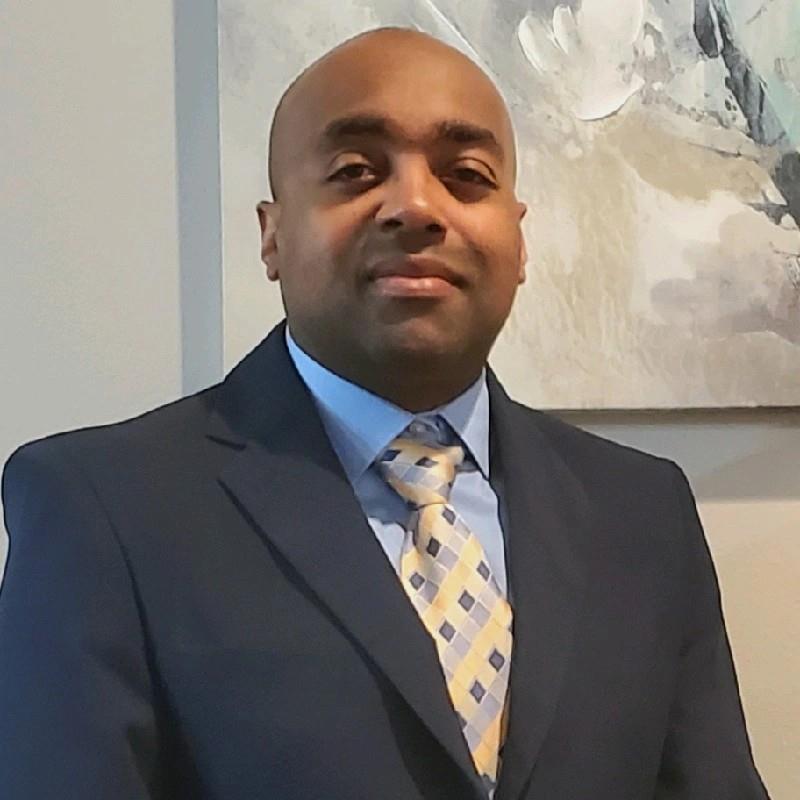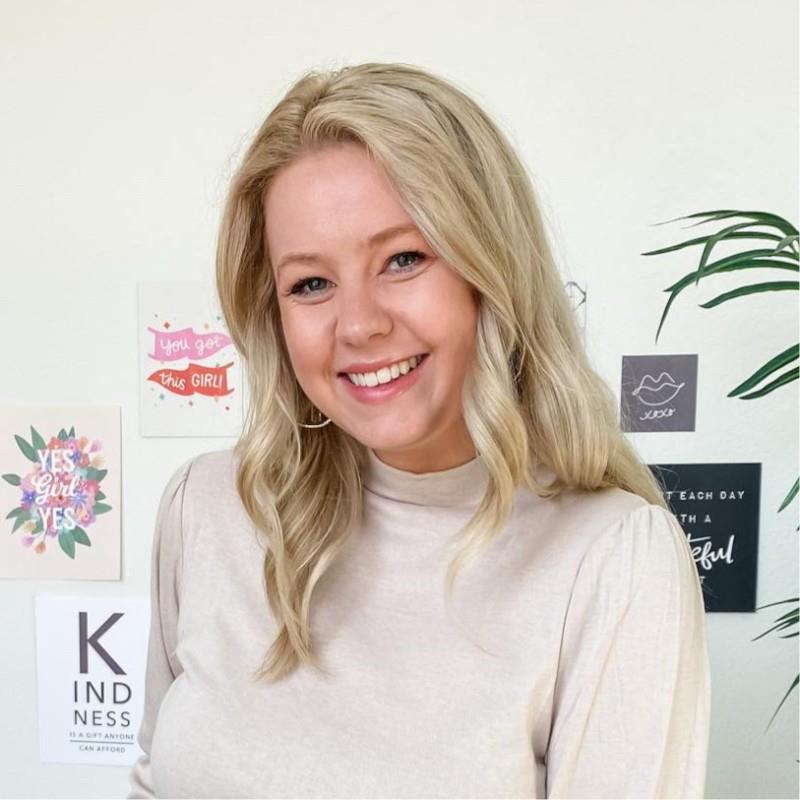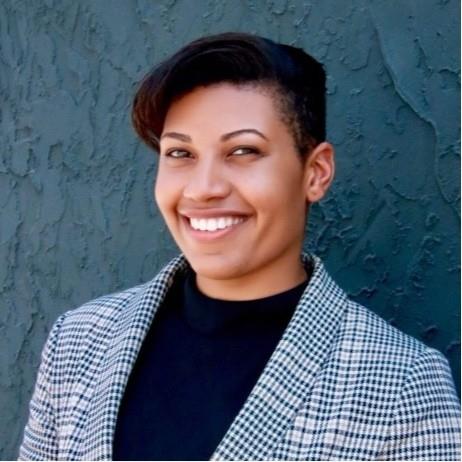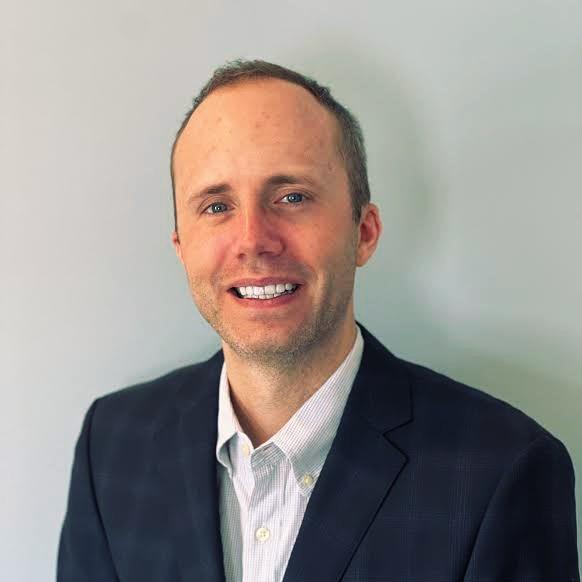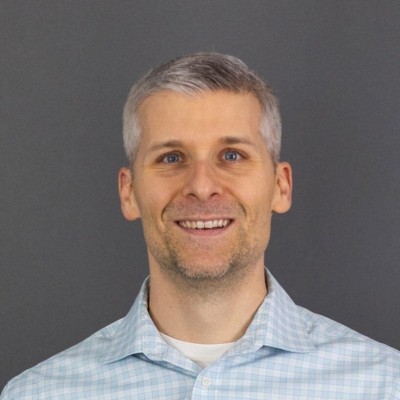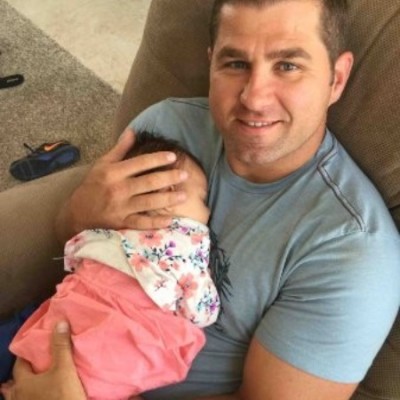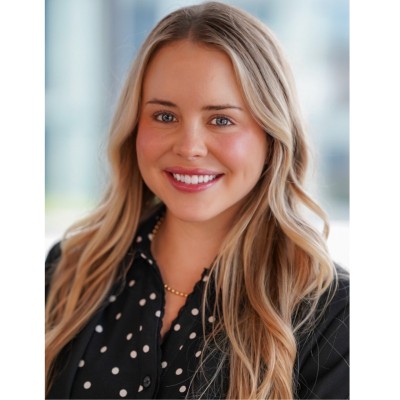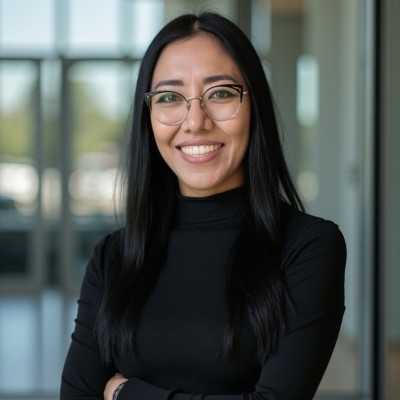You can be a mom and still be a top-performing medical sales professional. You need to want it badly enough that you’re willing to spend your time learning the craft. But you also have to make sure that you’re balancing your professional and personal lives, as this industry can and will wear you out if you’re not weary. Not many moms figure in our industry for now, but those who do really excel at their job. Dena Lewis is one of these exemplary professionals. She’s had quite the career, being able to hold different positions in subfields like spine and ophthalmology. Joining Samuel Adeyinka for a special conversation, Dena shares how she manages her time efficiently so she can achieve her professional goals while being the best mother in the world. Tune in and see if Dena’s path is something you can emulate!
The CE experience for this Podcast is powered by CMEfy – click here to reflect and earn credits: https://earnc.me/RzJB58
—
Watch the episode here
Listen to the podcast here
A Mother’s 20 Years Experience In Medical Device Sales With Dena Lewis
We have with us Dena Lewis. First and foremost, Dena is a mother. This is a Mother’s Day special episode in honor of mothers. She has been in the medical sales space. She has had quite a career. We get to sit with her and listen to her experience in all of these different positions that she has held in the medical sales space. As always, we do our best to bring you innovative guests that are doing things a little bit differently in medical sales. Thank you for tuning in to the show. I do hope you enjoy this interview.
—-
Dena, how are you doing?
I’m good. How are you?
I’m fantastic. Why don’t you tell the audience who you are and what you do?
I’m Dena Lewis. I’m from a large spine company in the US. I go into the operating room on a daily basis and do case support.
We have had a lot of guests on the show that have been the spine space, but I want to get your take on it and I want to go through your history. What you guys might not know is Dena has very vast experience in medical sales. She’s in a number of roles in a number of fields. She’s going to touch upon quite a few of them here. Let’s start with spine. In a nutshell, what would you say your experience in spine has been?
It’s interesting because, in the spine world, you have two categories. You have the day-to-day hardware that typically tends to repair discs and different disruptions of the spine, and then what I do is more disruptive. I do technology that is changing the way people live from a pain perspective and giving them the quality of life back.
One specific product is still fairly new to the market and extremely disruptive in the space. For me, that is an attractive point. It’s not so much about what I’m selling and what company I’m working for. It’s more about selling something that’s disruptive that I know is going to change the way people live and help improve their quality of life.

Is this product where you talk to patients as well or do you only specifically talk to providers?
It’s just providers. We mostly deal with surgeons in this industry. Clinically, I tend to fall on the side of clinical roles where I try to get more surgeon buy-in and end-user buy-in, but we always deal with hospital administration. It always typically comes down to cost and how we are going to get it placed in the facility. I deal with C-Suite, OR buyers, clinical managers, surgeons, so a plethora of different players but don’t typically deal with patients unless it’s someone I know personally that I know is going through something that could benefit from a product I sell.
The one thing I want to highlight is women in spine. There are a lot of assumptions about what it’s like for women in spine. I would love for you to share with us what some of those might be, what your take is, and what any woman that’s considering going to spine should be thinking about.
Our industry in general doesn’t have a lot of women. Women are more typically in support roles, clinical roles, clinical account, or CAM-type roles as we call them, but it’s very hard to find women in the OR in the orthopedic space. This has been my whole career, but I have never based anything I have sold on a specialty. I go after the clinical value and I have somewhat found myself in more male-dominated roles.
Women in spine specifically are unique. It’s changing a little bit. You see more women in the spine space than you do maybe in the orthopedic space, and there is a huge need for that to change. Women can bring so much value, but then you don’t see a lot of female orthopedic surgeons either. It’s a hard job. Orthopedic surgeons deal with large joints a lot of time on their feet and a lot of manual manipulation. Physically, it can be a very tough job. As medical device reps, we bring value to our surgeons in the OR from a consulting perspective. I think that there are more female minds that should be involved in that because we can bring a lot of value to that space.
I believe it 200%. For women that are thinking about getting into spine, what would you share with them?
Look for a product that you can be passionate about. Whether it’s spine or any of the other various things I have done in my career, if you can’t be passionate about it, then it’s not worth selling because it is a hard job. You have got to get up sometimes hours of the day when other people are not even moving, especially if you are going to get into a trauma-related role. You have to love what you do. You cannot do this job for the money.
The money is good, but you work very hard for it. The plus side to it is that you get so much value at the end of the day, knowing that you have made a difference in someone’s life. I look at patients that have been in pain for years and simply what they are implanting in this lady that maybe is 70 years old. She’s extremely kyphotic and might have osteoporosis. What she looks like and feels like after the surgery and recovery is she’s getting her quality of life back. At the end of the day, the money is good, but the value comes more from what we do for people.
[bctt tweet=”In medical sales, you have to love what you do. You cannot do this job for the money. The money is good, but the value comes more from what we do for people.” via=”no”]
Before you jumped into spine, you were in ophthalmology. Is that correct?
Correct.
Let’s get into that space because that’s a space that there isn’t enough information about as a whole. What is ophthalmology? Go ahead and describe it to the audience. Remember, our audience is people that have never been in medical sales as well as people that have been in medical sales in all different facets of medical sales. How would you describe ophthalmology to our audience?
Ophthalmology is such a wide breath, and I’m going to back up for a second. I jumped off of a bridge when I went into ophthalmology because it was the only part of anatomy I had never done before. I had done so many other things and I thought, “The eyeball. I haven’t done that. Here we go.” The range of what you can do in the ophthalmology space can be anything from more retail-heavy on contact lenses, dry eye devices, and things that you typically deal more with physician office-based products or B2B, and it can be something as involved as surgical. Maybe you have heard of LASIK, where people go in and have their vision corrected, or IOLs, which are Inter-Operative Lenses where they go in and replace the lens in your eye with an inter-operative lens to give you better vision.
That typically is common for people with cataracts or have some other type of vision problems, and they have IOLs, which is an implant in your eye. It can vary. It can be something as simple as what you buy over the counter like eyedrops or something that if you have dry eye, you can buy eye drops over the counter. Pharmaceutical has a lot of products in the ophthalmology space.
If you are looking to get into this space, there are so many different things you can do. If you are not someone that wants to be in an operating room and doesn’t deal well with blood, then maybe the surgical side of ophthalmology is not right for you. Maybe it’s more the retail, contact lenses, drops, things like that, or something that fit your life a little easier.
Talk to us a little bit about the difference in lifestyle between the two types of ophthalmology medical sales you can do.
The biggest difference is the commitment level. I have the best work-life balance when I was in the ophthalmology space because I did choose to be more on the retail side. I came out of the surgical world during COVID, and ophthalmology was one of the spaces that didn’t shut down. It did from a surgical perspective, but the rest of the world was still rolling. We still needed to see. People still needed glasses. They still needed their contact lenses.
Ophthalmology offices opened quicker than most doctors’ or physicians’ offices did. We were still very busy. I came out of the operating room during COVID to move into this space. My work-life balance was great when I was in that role because I had a 9:00 to 5:00. I would go in. I would call on physicians during the day.
There are a lot more metrics than what I was used to in med devices because in med devices we are in the operating room consulting. Our reporting comes typically at the end of the day or even sometimes over the weekends. It was a different work-life balance. Surgically, you are in the operating room. Your hours can vary. If it’s intriguing to someone to spend a lot of time on their feet all day in an OR, then the surgical side might be better.
What’s the range in salary between the two, the retail side and the surgical side within ophthalmology?
It varies by company. I still made very good money on the retail side. I call it the retail side. It was still considered patient interfacing, but I didn’t make as much as I did in surgical. In med devices specifically, you are always going to do better on the device side. I would say it’s equivalent probably to a pharma rep.
With ophthalmology, what does the ascension look like? Is it the same as in any medical sales rep if you want the manager and then if you want the executive, or are they different? Maybe more nuanced roles in the ophthalmology space.
With all of them, they are pretty consistent. I always recommend to people, if they have never been in this industry, whether it’s the device or the retail side, to look for a company that might be looking for a junior rep or a territory assistant. They are going to provide you with amazing support. They are going to put you out in the field without the expectation of knowing everything the day you go out.
There’s less pressure because you are learning under a senior rep, and then from there, you do get moved up. Especially in the med device space, some of the bigger players have great junior associate roles. When you move up, you move up into your own territory. The hierarchy is very similar. They want to know that you can carry the bag successfully before they move you into a management role. Not all great reps make good managers. Have you ever heard of the DiSC assessment?
Of course.
Med device tends to employ more high D and I personalities. Those sometimes don’t make the best managers. You look at the qualities in a person. You look at their ability to track metrics and reporting, and those people tend to typically get moved up into a management role. A lot of reps choose to stay in their role because they make more money as a rep than they do as a manager.

In the ophthalmology space as well, can you go from retail to surgical side and surgical to retail? Is it that easy to make the switch, or once you are in retail, you are retail for life, or once you are in surgical, you are surgical for life? How does that work?
I think you could. It’s going to be based on the company. The one company I have had experience with was amazing at promoting from within, and they were also very good at personal growth. If there was something you were interested in and you have proven yourself in your own space and done well, you have proven yourself as far as your numbers. You have posted good numbers, you have had a good territory, and you have good feedback from your customers. They were always willing to allow someone to look at other opportunities. What was great is that they did it without discrimination. I had a situation specifically and I went to my manager and he said, “You would be amazing and I don’t want to hold you back,” and he helped me. It depends on the company and the experience and what you have proven in the space.
What would you say the biggest nuance to ophthalmology sales is compared to traditional or not even traditional but more common medical device roles and more common retail pharmaceutical sales roles?
Being on both sides, the one thing I enjoyed the most is I didn’t have to be credentialed any longer. When you are in the med device, there is a very involved credentialing process you have to go through to be able to get into a hospital and into the operating room. It was very expensive. Most companies do pay for it for their reps, but you have to keep all of that up on an annual basis.
Think of like a nurse who has to have all of her shots and all of her immunizations. All of this training that you have to go through. HIPAA violation training and blood-borne pathogen training. It’s every year. As a device rep, you have to keep up on that and you have to keep that current, or else you are not allowed in the hospital. When I jumped over into ophthalmology, the retail side specifically, all of that went away.
For me, I did dance. It was something I didn’t have to keep up with any longer. Even though we were still heavily monitored by something called the Sunshine Act, things you can and can’t do, and things you can and can’t purchase. It was a little bit more relaxed than some of the things we do on the device side. I didn’t feel as though we had to constantly be thinking of what we are saying and doing on a regular basis. The stress level is not as high. I appreciated that as well, and the territory was smaller. Another huge nuance is that you do tend to get smaller territories like in a pharma position. You are just in a more isolated and generalized location.
If you can give us three qualities that you think someone that wants or considering to be an ophthalmology rep should have, what would they be?
Extremely outgoing and someone who is confident because you do go into offices on a daily basis, multiple offices at a time. They have patients in there. Patients come first. You are there to bring value with the products that they carry. Sometimes they don’t see you. They don’t want to see you. Sometimes they are having a bad day and you are the one they take it out on. Someone who’s confident, and then someone who’s persistent, but that is indicative of both ophthalmology and any med device. You have to have thick skin. You can’t take things personally.
You wouldn’t say there’s any other thing that’s nuanced specifically to ophthalmology that’s a little different from other medical sales.
One of the other nuances is that it is so specific to the eye. It’s part of the body that there are not multiple other things that can be affected or go along with it. You are only dealing with the eye. It was very laser-focused and I didn’t have all these other parts and pieces to think about. It was just one specific thing that I could focus on. It’s more of a laser focus on what you are doing in your product was a nuance.
Let’s take it back. Back to college. Senior year, you were about to start life. Did you know you were going to be a medical sales rep or was it something else?
Not at all. My path was not that. I grew up in a family where my father was the president of a very large company and my mom was in medicine. Medicine was not my goal or not my path because I didn’t seem interested in it. I was going to go to work for my dad’s business when I graduated from college. He was in the packaging industry, so paper and packaging.
I did go to work for his company. I worked for his company during the summers when I was still in college and got a lot of experience, and then I got a territory. Let me back up before I got the territory. I went inside to customer service and got a little bit more experience with the geography, and then got a full-on territory and worked for my dad for a few years.
It was a great industry, but two things became evident to me early on, 1) It’s not an industry I wanted to be in for the rest of my life, and 2) I love my dad so much that I could not be with him any longer or else our relationship would never last. I literally quit my job one day and I didn’t have a job. I didn’t know what I was going to do, but I knew that wasn’t it.
I got a job in retail. I started researching other sales roles because I loved the aspect of sales. I just didn’t know what I wanted to sell. I went to college and started out as a Political Science major and switched over to Business. I had a degree in Business Administration with a minor in Marketing. I didn’t know what I wanted to sell. I just knew I wanted to sell something because I knew that I wanted to be in front of people, and I was great at relationship-building.
I started looking around. I had a friend recommend pharmaceuticals. I started looking at pharmaceuticals and I thought, “This sounds great.” I then got in with a recruiter. She recommended that I look at med device and so I said, “I’m willing to do either.” For me, the intrigue was the money. I’m not going to lie. Money was my motivating factor. It wasn’t because it was med device or pharma, it was more the money. I was fresh out of college and needed to make a lot of it. I looked at that and then she got me an interview. She told me, “You are not going to get this job. They have already picked their candidate, but I’m putting you in front of this manager because I know him well. He can give me unbiased feedback on how you interview and then we can go from there.”
When she told me I wasn’t going to get the job, that motivated me to do anything and everything I could to make sure I got the job. I put together a business plan. I spoke to a couple of other reps in the geography and I went to the interview. Long story short, that was my first job in med devices. They took a chance on me versus a tenured rep of twenty years. It was the best decision I ever made and I never looked back. I will give a piece of advice on that. Anyone who’s looking to get into the industry, always talk to people in the companies that you are interviewing with. Reach out to them on LinkedIn and network with them. You would be surprised how much weight that carries.
[bctt tweet=”Always talk to people in the companies that you are interviewing with. Reach out to them on LinkedIn and network with them. You would be surprised how much weight that carries.” via=”no”]
You know what we do here with our program and it’s extremely competitive now. How do you see the things that we do for people that want to get into the industry?
It’s amazing for a couple of reasons. There weren’t things like this. I have been in this industry for twenty years. There weren’t things like this when I was trying to get into the industry. Any help that you guys provide is amazing. I think that people should take advantage of it. There are medical device school programs. In my opinion, a lot of that is like any other school. You can go to real estate school and get a real estate license, but when you graduate with that license, you still don’t have customers. You still have to go out and find them. A program like yours that helps people not only get a job but be prepared for that job is completely invaluable in my opinion.
You got into your first medical device gig. What field was it?
I went to work for a company and we did a little bit of everything. We did sharps containers. We did some products in the chemotherapy cancer patient space. It was completely disposable devices. That’s what it was.
Tell us all the fields you have been in.
I have done disposable. I have done Capital. I have done DVT prophylaxis and prevention. I have done fetal and vascular monitoring. I have done orthopedics, neuro, and breast mastectomies, not plastic specifically, but mastectomies for cancer patients. I have done general surgery and colorectal. This was another jump. I did lab for a little while where I did molecular residual disease testing and hereditary cancer screening. I did ophthalmology, then back into the world where I was the most successful, which is more the orthopedic space. The space I know the best. I have done a little bit of everything.
You have done about all of it. Your favorite space is orthopedic then?
It is. I love this space. Being in the OR, seeing what’s going on, and being that consultant for the surgeon, I absolutely love it. I like to be right in the middle of it all. I like to be the star of the show, not the supporting actress. The devices I sell are the star of the show.
Which field would you say gave you the most work-life balance?
Ophthalmology. In med devices, it’s a little unique. I did trauma and burn. No work-life balance there. Trauma, you are on call 24/7. If trauma happens, you are there. If they are utilizing your product, you are there. I remember my days. We lived in Orlando and I had trauma in Daytona, and during bike week in Daytona, I slept at the hospital. I never went home.
That was pre-children. Once we started our family, I jumped out of the trauma space. It was not going to be conducive. I jumped out of that space, but ophthalmology brought me the most work-life balance. It was the role specifically. I was dealing more with regular office-based hours and I had a very small geography so that I could be home in the mornings. When my kids left for school, I was home in the afternoons when they got there.
That is very cool. I’m going to call you Mrs. Experience. Is there any other thing you’d like to share with our audience?
For me, there’s somewhat of a mission and I appreciate that you guys reached out because I have been in this space for twenty years. You can be a mom, a wife, and a female in this industry. You just have to want it bad enough and you have to figure out the balance. This industry will wear you out. It will burn you completely out.
[bctt tweet=”You can be a mom, a wife, and a female in medical sales. You have to want it bad enough and you have to figure out the balance.” via=”no”]
If you manage it instead of letting it manage you, it can be the most rewarding thing you have ever done in your life. I tell women specifically, do not shy away. Do not think you can’t do it. I’m living proof. I’m not any smarter than anybody. I don’t have an MBA. When I started this industry, I didn’t even know what anatomy and physiology meant, and back then they didn’t train us to know what it meant. We learned OJT, on the job. You can do it if you want it bad enough. You just have to focus and do it.
I’d also add that medical sales like you have experienced is vast. There are fields that can give you a lot of work-life balance, and there are fields that can give you very little work-life balance. The opportunity for you is which field makes sense for you.
Maybe sales is not your thing because you do go through some pretty intense sales-specific training in this industry, and it will vary depending on who you work for. Some companies want you to do need space selling. In some companies, when you are in the OR, you don’t have a lot of time to ask a lot of questions. You get to the point. You answer the question, and then you stay quiet.
It depends on what you are doing, but the training for sales-specific roles is great, but you might get into sales and say, “This isn’t for me.” Do your time, and then you can maybe move into a product manager role or a marketing position, but it’s important to know that a lot of the companies in this industry are going to promote from within, and they are going to promote based on success and tenure. Those are two of the biggest things to realize.

Dena, are you ready for our lightning round?
I don’t know.
You have less than ten seconds to answer each question. Question number one. What is the best book you have read in the last six months?
I haven’t read a book in six months. Honestly, full disclosure. I haven’t had time.
It is what it is. What is the best book you have read last?
I’m going to go out on a limb on this one. The Purpose Driven Life. I love that book and I have read it more than once. When I lose foundation, I go back and read it again.

The best TV show or movie you have seen in the last six months.
Movie or TV show. I don’t get a lot of time to do either. My daughter and I love to do series on streaming and we have done the whole Stranger Things. I can’t say I loved it, but I was so intrigued by it that I couldn’t stop watching.
The best meal you have had in the last six months.
Starbucks is a major food group for me. It’s my coffee.
She calls Starbucks a food group. What type of coffee? You can’t tell us it’s your favorite place and not give us the name of the coffee.
I have an addiction. I admit it. I’m fully aware of it. Every morning I have a tall peppermint mocha with oat milk. They know me at Starbucks and they have it ready for me every morning at the same time. That’s bad. I spend way too much money there, but that’s my breakfast.
That sounds tasty right now. Lastly, what’s the best experience you have had in the last six months?
This new role I’m in hasn’t been very long, but I am so entrenched in what this specific device is doing. For me, it’s getting this chance to be able to see it live in cases and see how it’s going to make a difference for patients. That’s professionally. Personally, we made a move back to Florida and we are living at the beach. Life doesn’t get any better than that.
It’s a win. Thank you, Dena, for spending time with us. We have learned so much from your experience and we are looking forward to all the wonderful things you will continue to do in the medical sales space.
Thank you. I appreciate it. Have a good one.
You too.
—-
That was Dena Lewis. Quite a career. She has experienced so many different roles. It’s such a pleasure to talk to her. It has positioned her to be a consultant, which she is now. That has given her the flexibility and freedom that she always wanted. You might be tuning in to this episode and you might have learned a few roles that Dena has spent time in and thought to yourself, “This is exactly where I want to be.”
You already know what I’m going to say. If you tune in to this show for any amount of time, go to EvolveYourSuccess.com. Fill out the application and let’s have a conversation to help get you into a role and give you a story of what your experience is in the medical sales space. Medical sales is something that, as you guys already know, I’m a huge champion of. It creates amazing opportunities.
It creates a very healthy lifestyle. It creates so much knowledge and innovation and it allows you to be part of something much bigger than yourself. It makes sense why so many people want to be in medical sales. It also makes sense why there are programs like ours that will help you do it because it’s so competitive.
Some of you might be tuning in to this and you beat your head up against the wall because you have been trying to get into a position. Maybe you have been interviewing and it’s not falling. Maybe you have been trying to get an interview and you can’t get one. Stop beating your head against the wall. We have a solution. EvolveYourSuccess.com. Fill out the application and let’s have a conversation and get you where you want to be.
As always, we do our best to bring you guests that are experiencing the life of medical sales, whether it be an individual contributor, a hiring manager, an executive, or a CEO. We are bringing their stories right to your doorstep so you can figure out where you want to be and how you can get there. As always, thank you for tuning in, and make sure you tune in for another episode.
Important Links
- Dena Lewis – LinkedIn
- The Purpose Driven Life
About Dena Lewis
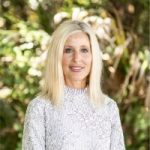 Strategic thinker that is driven to excel. Medical Device Sales representative with a tenured 15-year history as a key contributor. 15+ years of OR sales Experience. 15+ years of clinical experience. A process-oriented leader that is capable of setting clear directives and targets for me and the team. Able to achieve outcomes with little direction. Tri-athlete, marathon, and ultra-marathon runner.
Strategic thinker that is driven to excel. Medical Device Sales representative with a tenured 15-year history as a key contributor. 15+ years of OR sales Experience. 15+ years of clinical experience. A process-oriented leader that is capable of setting clear directives and targets for me and the team. Able to achieve outcomes with little direction. Tri-athlete, marathon, and ultra-marathon runner.
Love the show? Subscribe, rate, review, and share!
Join the Medical Sales Podcast Community today:
